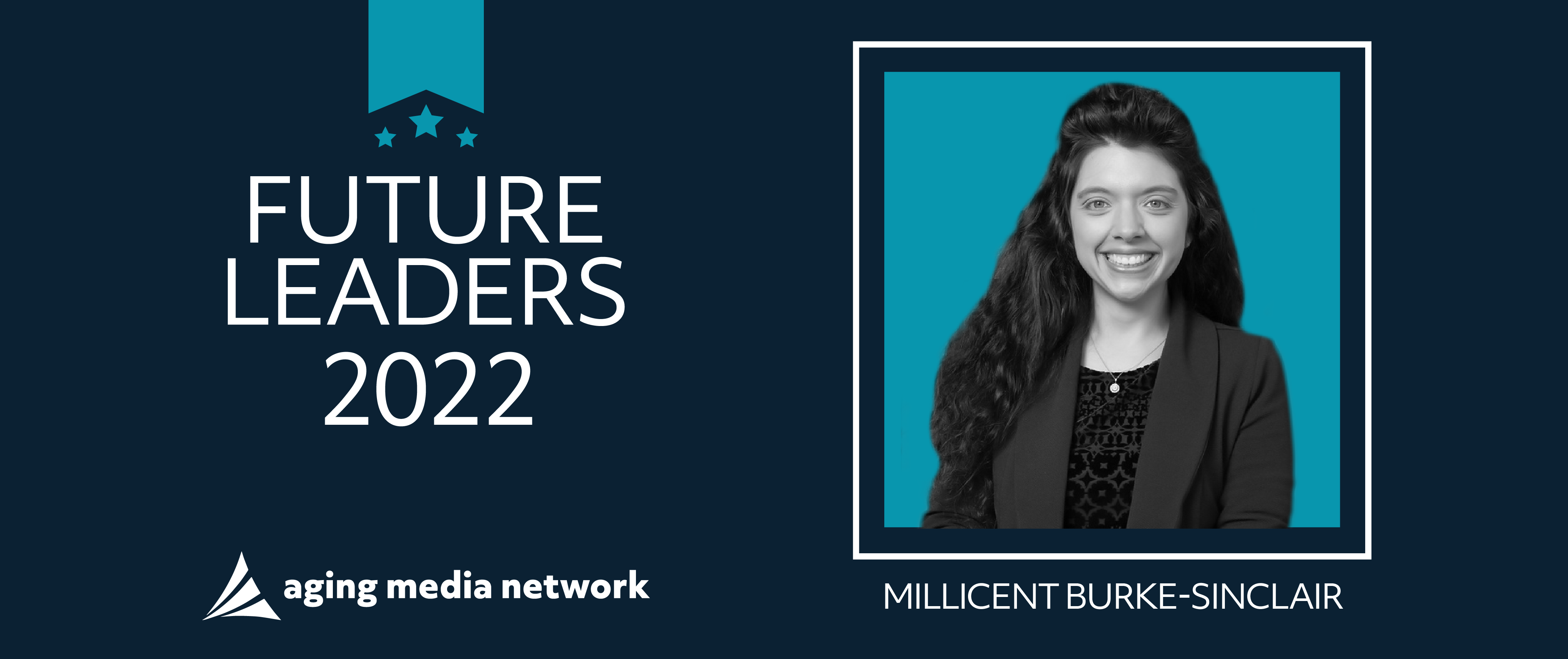Millicent Burke-Sinclair, president and CEO of the hospice and palliative care provider Four Seasons, has been named a 2022 Future Leader by Hospice News.
Future Leaders are individuals nominated by their peers. Candidates must be high-performing employees who are 40-years-old or younger, passionate workers who know how to put vision into action, and advocates for seniors and the committed professionals who ensure their well-being.
The Future Leaders Awards program is brought to you in partnership with PointClickCare. The program is designed to recognize up-and-coming industry members who are shaping the next decade of senior housing, skilled nursing, home health, and hospice care.
Burke-Sinclair recently shared her thoughts with Hospice News about her career in hospice and palliative care, and the biggest forces of change at play in serious illness and end-of-life care.
What drew you to the hospice industry?
Positively impacting lives has always been important to me. At multiple times in my life when facing loss, hospice was there. Hospice provided comfort and peace, support and confidence, and for that I will always be grateful. I felt called to be part of providing dignity and respect to everyone in need through hospice and palliative care.
Realizing how important every single individual is, and that every individual has a story and should be honored, my heart naturally connected with the mission and vision of hospice and palliative care. The focus is on the whole person, listening to what is most important to them as well as their loved ones, and truly valuing them as a person. Likewise, quality trusted care when facing a serious illness or at the end of life is imperative
How have you gotten to the position you’re in now, as president and CEO of Four Seasons?
[With] dedication to learning, growing and helping others do the same are important components of what I have lived throughout my career.
Prior to serving as president and CEO, I was the COO at Four Seasons. The role of COO allowed me to learn about the entire organization and begin learning more about the hospice and palliative philosophy and industry as a whole.
Since serving as the CEO beginning in 2017, I have continued to learn and help further our mission, and [make an] impact both locally and nationally. I’ve been grateful to serve on boards and committees with non-profit leaders in hospice and palliative care including, but not limited to, Teleios Collaborative Network, National Partnership for Healthcare and Hospice Innovations (NPHI), and the Association for Home Hospice Care of North Carolina.
Being open to asking questions and having questions asked are important components of constantly learning. Likewise, being dedicated to high performance both within myself and for those within our organization has allowed the commitment to providing trusted care be realized and enhanced daily.
Remaining connected with our employees and our local community, forming relationships with other providers across our country, and serving on state and national committees and boards continues to further my commitment to hospice and palliative care, and will continue to be important.
What’s your biggest lesson learned since starting to work in this industry? If you could give advice to yourself looking back to your first day in the industry, what would it be and why?
Embrace the opportunity to care for the community during life’s very difficult times. Take time to listen to others, get to know their story, and be part of positively impacting their life. Remain in the learning mode, develop genuine relationships, create a culture where people love working, receiving care, and making care possible.
Be willing to take chances, yet remain diligent and be innovative. Hospice and palliative care services are necessary but are changing rapidly. So, remembering the ‘why’ is imperative. The ‘why’ is, and will always be, about positively impacting lives.
What has changed the most since you came into the hospice industry?
Since coming into the industry, many more hospice organizations have started or expanded into new areas. Competition and complexity of providing quality care continues to increase.
Likewise, the payor landscape is evolving creating the necessity to continue to diversify services and look for innovative solutions for how to continue providing even higher quality of care regardless of changes we face.
One of the innovative strategies that I have been honored to be part of started about six years ago, when our organization partnered with another non-profit provider of hospice and palliative care to form a collaborative that we call Teleios Collaborative Network.
Teleios now serves more than a dozen non-profit hospices throughout six states, and is making a huge impact on how care is provided and strengthening the sustainability of remaining non-profit providers recognized for providing hospice honors and hospice elite levels of care, even through changes in our industry.
What do you foresee as being different about hospice looking ahead to 2023? What are you most optimistic about, as well as your biggest concerns?
External factors including workforce availability, access to care, reimbursement, payers, regulations, and competitors have and will continue changing. We must be ready, resilient and responsive.
Providing quality care to our communities is why hospice was formed, and why I will continue to seek to advance the care possible within hospice and palliative care both today and into the future.
If you could change one thing about hospice, what would it be?
It is imperative that providers of quality hospice care be supported in the care provision with proper reimbursement and payer options, thereby ensuring that all individuals who need access to serious illness and end-of-life care receive it, regardless of their ability to pay.
What is a quality that you think all Future Leaders in hospice must possess?
Future leaders in hospice must live, learn, and lead from a place one could refer to as ‘vision.’ They must: have vision; have integrity; be strategic; be innovative; have an open mind; and make learning and relationships necessary.



